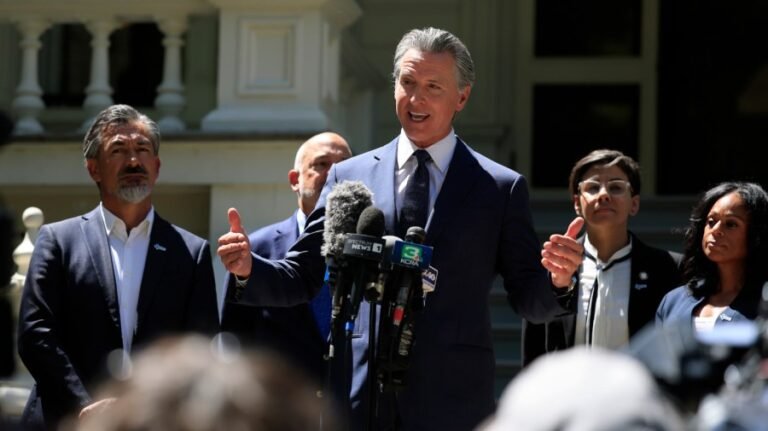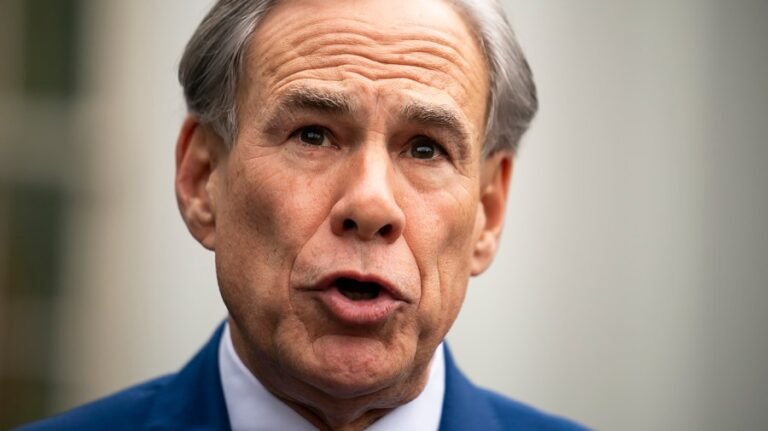
When it comes to immigration, there’s a refrain that periodically arises with respect to new immigrants: “They’re even more American than us,” or something to that effect. And if immigration causes any ill effects on Americans already here — such as disruptions in the economy or employment environment — they are reminded that they should just grit their teeth and “learn to code.”
Unfortunately, that advice may no longer be helpful. Layoffs in the tech industry for 2025 had already exceeded 80,000 as of July, according to estimates. Although the public may know the tech climate has been bleak, they haven’t heard much about the causes.
Corporate executives have been eager to insinuate that AI is driving the employment environment. Amazon CEO Andy Jassy said in June that there would “be fewer people doing some of the jobs that the technology actually starts to automate.”
However, Jassy did not mention another factor — the employment data indicate that Amazon has led corporate America in spurning U.S. workers in favor of foreign-born alternatives.
The company’s main operating arm submitted 31,817 Labor Condition Applications for H-1B, H-1B1, and E-3 visas in the second quarter of fiscal 2025, according to data published by the Labor Department’s Office of Foreign Labor Certification. The number grows higher — to 40,757 — if one accounts for Amazon Web Services, the company’s cloud-management division.
NVIDIA placed a distant second with 27,244 applications. Other top offenders included Goldman Sachs, which used three entities to file more than 26,000 applications. There’s also Microsoft (14,181 applications) and Apple (8,393 applications).
Labor Condition Applications allow companies to fill roles based in the U.S. with foreign laborers. They recently came under fire from Vice President JD Vance. Alluding to Microsoft’s announcement of layoffs weeks earlier, Vance said at an event, “You see some Big Tech companies where they’ll lay off 9,000 workers, and then they’ll apply for a bunch of overseas visas.” He added that he “just found out” and had “not yet had that conversation with Microsoft.”
In a statement, Microsoft denied that Americans had been laid off as a result of their foreign alternatives, pointing to the fact that it had also reduced its H-1B workforce.
“Our H-1B applications are in no way related to the recent job eliminations in part because employees on H-1Bs also lost their roles,” a spokesman told me. He added that 78 percent of Microsoft’s applications over the last 12 months were for “existing employees.”
Although these foreign workers are, in theory, intended to fill “high-skill” roles, the data tell a different story. According to the Labor Department, 82 percent of Microsoft’s H-1B applications for 2025 have been for positions the department classifies as Level I or II — entry or mid-level roles paid at or below the 34th wage percentile.
To put that in simpler terms: Microsoft is paying 82 percent of its foreign workers less than the prevailing market rate for their positions.
Even if Microsoft were able to find Americans willing to work for less than they’re worth, Microsoft wouldn’t be required to make any attempt to hire them — despite a widely held belief that H-1B employers are required to certify that they haven’t been able to find Americans to employ.
“It is remarkable how many policy wonks, news organizations, and academics get this critical fact wrong,” Howard University Professor Ron Hira, an H-1B expert who has testified on the issue before Congress, told me in an interview. “My experience suggests that more elites believe the falsehood than the truth. The program would look radically different and function much better if such a requirement existed.”
It is little wonder that younger Americans suspect all of this labor importation may have something to do with the challenges they’re facing. That applies not just in terms of employment, but also of problems ranging from the national housing shortage to the rising cost of car insurance to traffic congestion — which, as anecdotal evidence would have it, spontaneously fell amid immigration raids in Los Angeles last month.
Naysayers will disagree, nitpick, or read legalese about how their foreign workers were onboarded years ago to rationalize the idea that Americans haven’t been affected.
And that’s fine, but it isn’t going to change the fact that voters aged 18-21 sided with Republicans by a double-digit margin in Yale’s recent youth poll, largely due to these very concerns. Of course, those numbers could shift, particularly if Republicans fail to take action — likely pushing those young voters even further to the right.
Aside from Vance, mainstream politicos have been largely silent on this issue — perhaps because they don’t want to offend their corporate patrons. The best they can do is stay silent and hope that voters forget.
The media appear to be fully on board with that plan. As of July, a search for stories involving the Office of Foreign Labor Certification published within the last year returned zero results from outlets including The New York Times, Washington Post, and NBC News, among many others.
Contrast that with The Times’ obsessive concern with the State Department terminating a little more than 1,300 employees. “Cuts at State Department Demote Longtime U.S. Values,” the paper declared in the headline of a news (not opinion) article.
It sounds like firing a federal worker is akin to an attack on the very fabric of America’s values. By that measure, they must be the most American of us all.
That must be nice, but it may not elicit much sympathy from those who have somehow been deemed less essential to the country than their foreign replacements.
Rudy Takala has served as an editor for Fox News and The Hill and as a reporter for the Washington Examiner.

